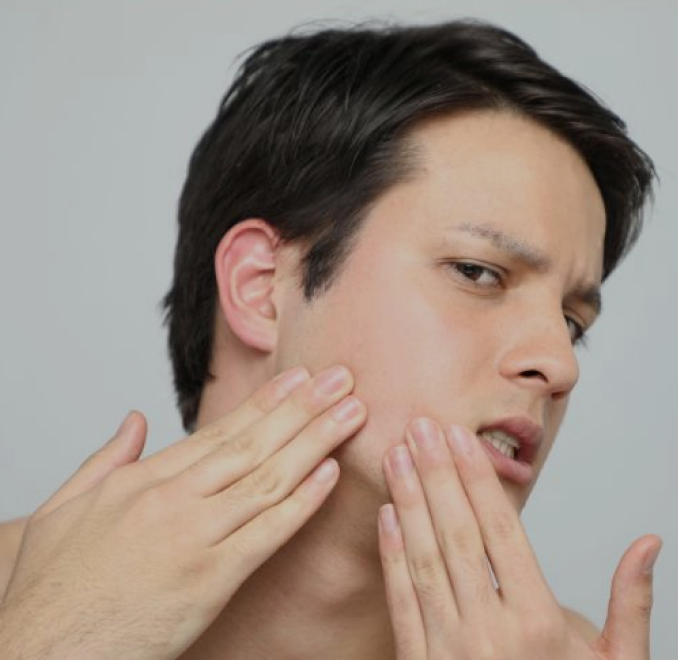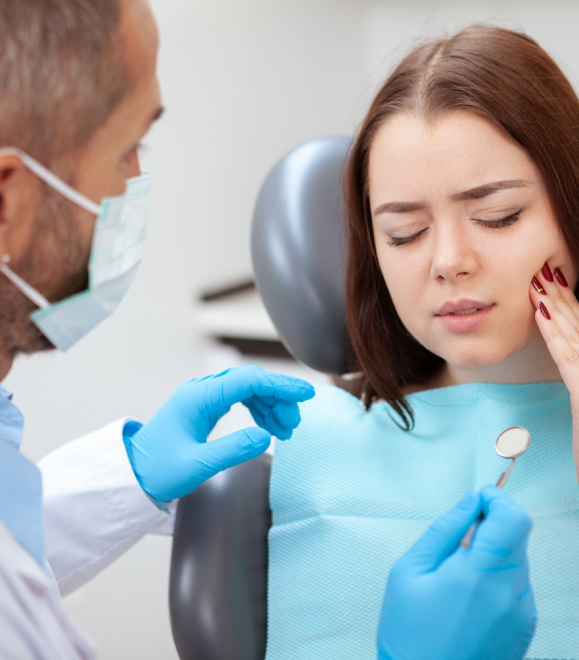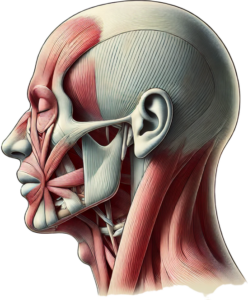Your temporomandibular joint (TMJ) is the hinge connecting your jaw to the bones before your ears. It helps you move your jaw up, down, and side to side, allowing you to talk, chew, and yawn. The severity and cause of the condition determine the exact symptoms, but common signs include Jaw pain, tension in the surrounding muscles, and difficulty with basic jaw movements.
Knowledge of the cause of TMJ disorders can help avoid aggravation of the condition and seek treatment for a timely solution.
It prevents numerous treatments from being applied while only addressing one problem that the TMJ is experiencing.
A systems approach can often address the root cause, which is more effective and usually eliminates the probability of similar problems recurring.
Temporomandibular disorder can cause pain for a period ranging from a few months to several years. It can happen on one side, both sides, or both sides of the face and is common in individuals aged twenty to forty. Symptoms may include stiffness and/or discomfort of the joints of the jaw, facial muscles, neck, shoulders, or around the ears that are more noticeable during chewing or talking. Sometimes, it can lock in either an open or a closed position and produce noise like clicking or popping in the Jaw joint issues. Although this clicking may not be painful, it indicates problems with the TMJ. Other common symptoms include the face feeling so fatigued that it seems the individual has not slept for several weeks.

Temporomandibular disorder can cause pain for a period ranging from a few months to several years. It can happen on one side, both sides, or both sides of the face and is common in individuals aged twenty to forty. Symptoms may include stiffness and/or discomfort of the joints of the jaw, facial muscles, neck, shoulders, or around the ears that are more noticeable during chewing or talking. Sometimes, it can lock in either an open or a closed position and produce noise like clicking or popping in the Jaw joint issues. Although this clicking may not be painful, it indicates problems with the TMJ. Other common symptoms include the face feeling so fatigued that it seems the individual has not slept for several weeks.
TMJ disorder is often misunderstood and misdiagnosed, leading to prolonged discomfort. Patients may not realize that symptoms such as headaches, earaches, or even upper back pain can be connected to jaw dysfunction. As a result, many suffer without seeking appropriate treatment.
Understanding the signals associated with TMJ disorders is key for quick action and effective treatment. You probably know about all the usual reasons. One important factor behind pain and discomfort in TMJ is an unbalanced bite that can result in major dysfunction in your jaw. Your TMJ disorder risks becoming an issue if you don’t watch your health, especially in light of stress, injury, trauma, dental problems, poor posture, and tissue disorders. Sleeping Disorder and Arthritis are additionally problems for the TMJ. There are several possible causes for symptoms alike, such as tooth decay, sinus trouble, and gum disease. In order to identify the essential cause of your symptoms, the dentist will examine your health background and do a physical examination.
Women may find that hormonal fluctuations can have an effect on TMJ disorders. Influences on muscle and joint function can come from changes experienced during menstrual cycles, when pregnant, or during menopause. The changes may cause greater tenderness and pain in the jaw. Recognizing how hormones impact TMJ can help in the process of uncovering effective treatment strategies.
Grinding or clenching the teeth often post bedtime or while dealing with stress creates tremendous pressure on the muscles and joints of the lower jaw, which leads to inflammation in the tendons and resulting in TMJ issues. It places such great stress on the jaw that it causes discomfort, inflammation, and deterioration of the joint.
Arthritis frequently causes issues with the temporomandibular joint (TMJ). Having inflammation and pain in the joint caused by conditions like osteoarthritis and rheumatoid arthritis makes it difficult to move the jaw without discomfort. Due to the breakdown of cartilage, there can be additional pain and greater stiffness in the joints. Detecting the condition early on will help in controlling symptoms and enhancing quality of life.
Although TMJ disorder shows symptoms of jaw pain accompanied by discomfort, it usually originates from deeper than that. The kinds of problems that can happen include muscle spasms, headaches, and pain in the ear area, all of which will considerably affect your daily functioning. Identifying these warning signs early is important, and obtaining the right treatment can help stop the worsening of the condition.
If these symptoms are affecting you, it’s a good idea to see a TMJ Expert in Los Angeles or a dentist. They can correctly identify your condition and craft a treatment plan specifically for your own needs. Appropriate care can help you lessen your TMJ symptoms and return to regular jaw function.
A dental specialist can greatly lessen the pain of disorders affecting the temporomandibular joint. Experts in this field have the proficiency needed to correctly analyze your condition and conceive a treatment plan that is customized to meet your unique symptoms. Working on the root causes of your TMJ problems, a TMJ Expert LA can help fix your jaw function and boost your overall quality of life.


TMJ disorders are also greatly influenced by your physical state of health. Pressure to the jaw or neck could result in some form of trauma, making the temporomandibular joint to be uncomfortable. Understanding the effect of TMJ through trauma makes it possible to detect these complications.


The intensity of TMJ pain increases with various psychological experiences, which include stress, anxiety, and depression. Knowingly, stress and negative emotions lead to enhanced muscle tone and uncontrollable jaw clenching, both of which will only worsen TMJ symptoms.


Difficulty breathing can impact TMJ, leading to disrupted sleep and decreased quality of life. Knowing the correlation between TMJ disorders and breathing issues can help manage corresponding symptoms effectively.
We help you improve your oral health and find relief from TMJ. Schedule a consultation with us today! Call Now. We’re excited to help you achieve a healthier, pain-free smile!
There are a number of common causes of TMJ disorders, and these disorders can be experienced differently by different people. Discomforts like pains in the face and jaw and headaches, together with facial suffering, can interfere seriously with day-to-day activities. There is a need for disability and effective TMJ management; hence, this article needs to review the boiling points of the subject. Holistic approach interventions also require a significant focus on stress reduction and other mindfulness practices.
Dr. Sid Solomon is renowned for his holistic approach to TMJ disorder, understanding that the condition impacts much more than just the jaw itself. His expertise extends to recognizing how TMJ issues can reverberate through the body, causing or exacerbating a variety of ailments. Rather than viewing TMJ in isolation, Dr. Solomon approaches it as a central piece in the larger puzzle of your health.
Inherited genes can impact the size and shape of the jaw as well as the alignment of the teeth. People with specific genetic jaw structures may have a higher likelihood of developing TMJ disorders due to misalignment.
People with TMJ disorders commonly grind their teeth (bruxism), causing too much wear on the tooth surfaces. This can lead to teeth becoming flat, chipped, or cracked.
Bad posture leads to people unintentionally tightening their jaws, which may add more strain on the TMJ. This tightening may cause pain and discomfort in the jaw and nearby regions.
Genetic conditions like Ehlers-Danlos syndrome impact the body’s connective tissues. These conditions may result in higher joint flexibility and instability, such as in the TMJ, which can make people more susceptible to TMJ pain and dysfunction.
A lot of individuals with TMJ disorders feel discomfort or pain in the jaw while eating or biting. This could occur due to jaw muscle and joint misalignment or strain.
Improper posture, like slumping or hunching, may result in neck and shoulder tension. This stress could lead to discomfort in the TMJ region, as the muscles surrounding the jaw might experience tension.
 chuck vaughn2024-09-04I am newer resident to Eagle and could not be more pleased with the dentist and the cleaning. The staff was excellent and the cleaning even better
chuck vaughn2024-09-04I am newer resident to Eagle and could not be more pleased with the dentist and the cleaning. The staff was excellent and the cleaning even better Garry Garrettson2024-08-27Dr Pelletier did a bicuspid crown quickly, efficiently & pain free. The permanent crown fit perfectly with no trimming required.
Garry Garrettson2024-08-27Dr Pelletier did a bicuspid crown quickly, efficiently & pain free. The permanent crown fit perfectly with no trimming required. Donna Mcrae2024-08-25Team at Time to Smile Dental are the best. They're extremely caring of the patient and the dental work is absolutely perfect, highly skilled and up to date knowledge and use of technology.
Donna Mcrae2024-08-25Team at Time to Smile Dental are the best. They're extremely caring of the patient and the dental work is absolutely perfect, highly skilled and up to date knowledge and use of technology. Andrea Bendtsen2024-08-18I'm almost ashamed to share this, but if helps even one person then it's worth it! I haven't been to the dentist to have a cleaning or much needed dental work in over 20 years. I know, I know, disgusting. But in my defense who wants to go to the dentist and be tortured? All of my experiences since childhood have been the worse moments in my life which caused an unhealthy fear of. And add to that the hate hate relationship and I have with metal and that takes it even next level. Now looking back I think it was probably more the metals fault then the actual dentist, so I'm probably not being very fair to the dentist themselves, but still. Seriously though, I am extremely super sensitive to metal and if it slightly touches my teeth whoa it zings my entire body in not a good way! Even if I touch a metal with my hands that's too strong it goes through my entire body as well. So you can imagine why I hate the dentist office cause that's all they use, but knowing I had an issue with my tooth I was at a point if having no choice but to go. My search started for a dentist that would be patient and understanding and thank God I found Dr Hathaway at Time To Smile. Based on his reviews I just knew I had to give them a chance. Im proud to say I didn't cancel, I showed up, and I actually walked in the doors and was greeted by the friendliest staff ever. I met with his assistant who had the sweetest loving nature. She went above and beyond to make me as comfortable as possible and when I met Dr Hathaway it was just the cherry on top. He knew of my sensitivity and used an actual long q-tip to do my exam. Once we found out all the work that needed to be done including my deep cleaning we scheduled an appointment where I would be sedated. I felt like this was exactly what I needed and so grateful for having this option. Day of appointment all I remember is taking my pill and getting ready to go and next waking up at home nice and comfy in bed! You need someone to take care of you, but other than that, can you imagine not having to suffer though having a cleaning or dental work? They did everything I needed and I couldn't be happier. It was the best experience of my life especially because I didn't have to experience it at all! I'm so so grateful and feel blessed by Dr Hathaway and his team. I will scream from the rooftops of how amazing he is and will recommend him to everyone! Thank you Dr Hathaway for being so kind, patient, empathetic, and understanding of patients like myself, I know how much you care and how much you wanted to help give me the best dental health possible. 🙏🏻🩷
Andrea Bendtsen2024-08-18I'm almost ashamed to share this, but if helps even one person then it's worth it! I haven't been to the dentist to have a cleaning or much needed dental work in over 20 years. I know, I know, disgusting. But in my defense who wants to go to the dentist and be tortured? All of my experiences since childhood have been the worse moments in my life which caused an unhealthy fear of. And add to that the hate hate relationship and I have with metal and that takes it even next level. Now looking back I think it was probably more the metals fault then the actual dentist, so I'm probably not being very fair to the dentist themselves, but still. Seriously though, I am extremely super sensitive to metal and if it slightly touches my teeth whoa it zings my entire body in not a good way! Even if I touch a metal with my hands that's too strong it goes through my entire body as well. So you can imagine why I hate the dentist office cause that's all they use, but knowing I had an issue with my tooth I was at a point if having no choice but to go. My search started for a dentist that would be patient and understanding and thank God I found Dr Hathaway at Time To Smile. Based on his reviews I just knew I had to give them a chance. Im proud to say I didn't cancel, I showed up, and I actually walked in the doors and was greeted by the friendliest staff ever. I met with his assistant who had the sweetest loving nature. She went above and beyond to make me as comfortable as possible and when I met Dr Hathaway it was just the cherry on top. He knew of my sensitivity and used an actual long q-tip to do my exam. Once we found out all the work that needed to be done including my deep cleaning we scheduled an appointment where I would be sedated. I felt like this was exactly what I needed and so grateful for having this option. Day of appointment all I remember is taking my pill and getting ready to go and next waking up at home nice and comfy in bed! You need someone to take care of you, but other than that, can you imagine not having to suffer though having a cleaning or dental work? They did everything I needed and I couldn't be happier. It was the best experience of my life especially because I didn't have to experience it at all! I'm so so grateful and feel blessed by Dr Hathaway and his team. I will scream from the rooftops of how amazing he is and will recommend him to everyone! Thank you Dr Hathaway for being so kind, patient, empathetic, and understanding of patients like myself, I know how much you care and how much you wanted to help give me the best dental health possible. 🙏🏻🩷 Nola Mandels2024-07-18Every time I walk in the doors of this office, i'm greeted with the kindest smiling faces! I am so incredibly thankful I found Dr. Hathaway and the entire team at Time To Smile Dental! The staff here are just lovely, caring people who are genuinely are invested in their patients. They are highly skilled, gentle with their approach and if you have any anxieties or fear around dentistry, they ensure you feel comfortable and safe. I have had both dentistry and orthodontia work done here, and me teeth have never been healthier but they also look amazing! Thank you all! By far the best dentistry experience I have had!
Nola Mandels2024-07-18Every time I walk in the doors of this office, i'm greeted with the kindest smiling faces! I am so incredibly thankful I found Dr. Hathaway and the entire team at Time To Smile Dental! The staff here are just lovely, caring people who are genuinely are invested in their patients. They are highly skilled, gentle with their approach and if you have any anxieties or fear around dentistry, they ensure you feel comfortable and safe. I have had both dentistry and orthodontia work done here, and me teeth have never been healthier but they also look amazing! Thank you all! By far the best dentistry experience I have had! Ciara Jaramillo2024-07-17Our dental hygienist, Deidre is always so friendly and kind. Her attention to detail she provides for our dental hygiene is impressive. Dr Hathaway is amazing. We always leave our appointments feeling cared for and our dental needs met for our whole family. The office staff is absolutely great at answering any questions, insurance issues, or calling us back. It is always a 5 star experience.
Ciara Jaramillo2024-07-17Our dental hygienist, Deidre is always so friendly and kind. Her attention to detail she provides for our dental hygiene is impressive. Dr Hathaway is amazing. We always leave our appointments feeling cared for and our dental needs met for our whole family. The office staff is absolutely great at answering any questions, insurance issues, or calling us back. It is always a 5 star experience. Michelle Waltz2024-06-14I love the team at Dr. Hathaway's office, I've been going there for over 20 years and will continue to do so
Michelle Waltz2024-06-14I love the team at Dr. Hathaway's office, I've been going there for over 20 years and will continue to do so
Have more questions? Schedule a consultation to learn more about how we can help you.
Therapies are typically combined in treating TMJ problems. This might involve treatments such as physical therapy, dental splints or night guards, pain relief medication, stress management strategies, and adjustments to one’s lifestyle. In more serious instances, dental treatments or operations may be necessary.
The primary reason for TMJ disorder can differ among individuals but commonly involves factors such as jaw injury, teeth grinding, arthritis, misaligned teeth, and stress. Recognizing the exact reason is crucial for successful therapy.
Possible factors that lead to TMJ are jaw injuries, improper dental alignment, stress and anxiety, arthritis, and lifestyle habits like excessive teeth grinding or chewing gum.
The emotional impact of TMJ may lead to heightened levels of anxiety, stress, and frustration caused by continual pain and discomfort. The effects on everyday actions and well-being may also result in a sense of powerlessness or sadness.
Several factors, such as jaw injuries, bruxism, arthritis, misalignment of teeth or jaw, stress, and poor posture, can lead to TMJ syndrome. These problems may result in inflammation, discomfort, and impairment of the temporomandibular joint.
Indeed, stress can play a major role in the development of TMJ disorders. Frequently, it results in tight muscles in the jaw and can lead to behaviors such as grinding teeth or clenching the jaw, which can worsen TMJ symptoms.
TMJ pain doesn’t have to be your daily reality. Let us help you find lasting relief and regain control of your well-being.
